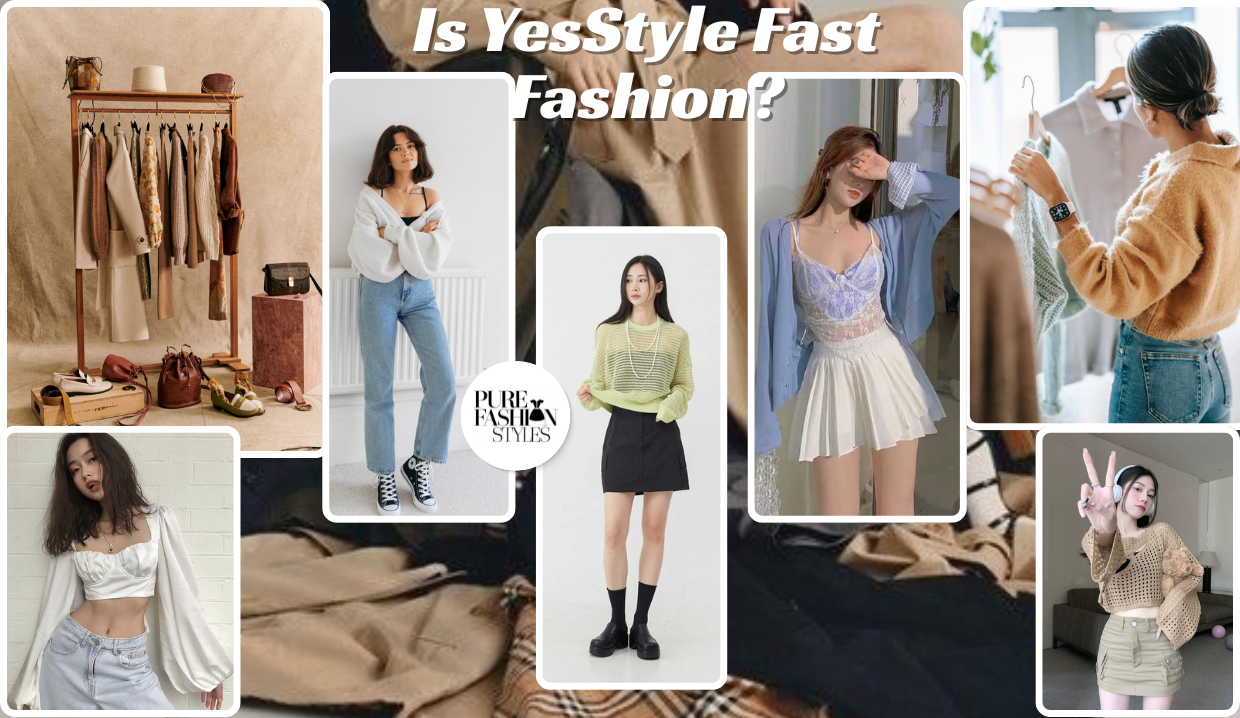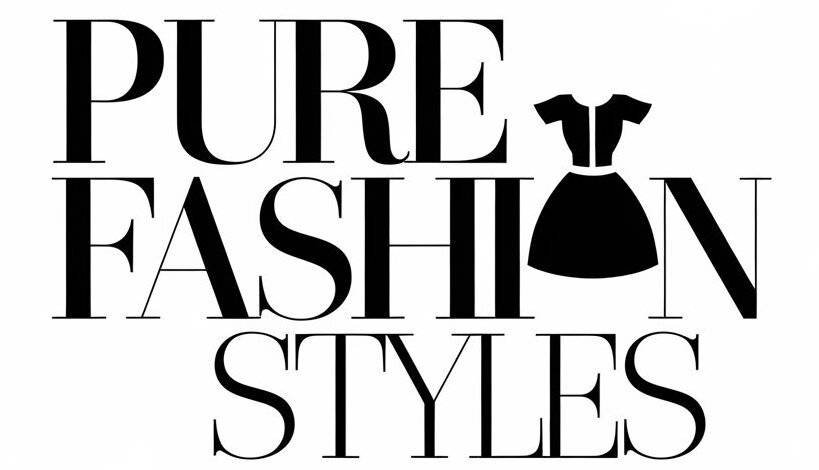Is YesStyle Fast Fashion? Uncover the Truth About Its Ethics, Quality & Sustainability

YesStyle has become a go-to destination for trendy, affordable Asian fashion and K-beauty products. But with its massive catalog and constant new arrivals, many shoppers are starting to ask—is YesStyle fast fashion? In a world where sustainability and ethical practices matter more than ever, understanding a brand’s true impact is essential. This article explores YesStyle’s business model, environmental impact, and ethics to help you decide if it aligns with conscious shopping values. Let’s uncover whether YesStyle is just another fast fashion brand or something more responsible.
What is Fast Fashion?

Fast fashion refers to clothing brands that quickly produce low-cost, trendy items to keep up with the latest styles. These brands often use cheap materials and mass production, leading to poor quality and harmful environmental impact. With short product lifespans and minimal transparency, fast fashion contributes to massive textile waste and unethical labor practices. Understanding these traits helps us evaluate whether YesStyle’s fashion model fits into the fast fashion category or takes a more sustainable approach.
Is YesStyle a Fast Fashion Brand?
YesStyle shows many signs of being a fast fashion brand. It offers thousands of low-cost clothing items with frequent new arrivals, similar to brands like Shein. Flash sales, rapid trend cycles, and a focus on affordability suggest a fast fashion model. While YesStyle positions itself as a global Asian fashion marketplace, its high inventory turnover and limited transparency raise concerns. To truly understand if YesStyle is ethical, we need to explore its business practices and sustainability claims further.
Also read: Affordable, Sustainable & Versatile Style with Webfreen.com Fashion
YesStyle’s Business Model Explained

YesStyle operates as an online fashion marketplace, sourcing products from various Asian brands, mainly from Korea, China, and Japan. Unlike traditional brands, YesStyle doesn’t manufacture its own items—it connects buyers to third-party vendors. This allows the platform to list thousands of new items regularly at low prices. While this model offers variety and affordability, it also limits control over ethical practices, supply chains, and sustainability standards, which are key concerns when judging fast fashion behavior.
Sourcing & Supply Chain Transparency
YesStyle offers little transparency about where or how its products are made. As a third-party vendor platform, it doesn’t clearly list supplier details, labor conditions, or ethical sourcing practices. There’s no information about certifications like Fair Trade or GOTS. This lack of supply chain visibility raises red flags for conscious consumers. Without clear insight into how its clothes are produced, it’s difficult to know if YesStyle supports ethical fashion or simply prioritizes profits over people.
Material & Fabric Analysis
YesStyle mainly uses synthetic fabrics like polyester, rayon, and conventional cotton—materials commonly linked to fast fashion. These fabrics are inexpensive but often non-biodegradable and resource-heavy to produce. While some items may mention eco-friendly blends, there’s little proof of sustainable sourcing. The lack of fabric transparency and certifications suggests that YesStyle’s materials are chosen more for cost than environmental impact. For shoppers seeking sustainable fashion, this raises questions about YesStyle’s commitment to greener practices.
YesStyle’s Environmental Impact
| Fabric Type | Used by YesStyle? | Eco-Friendly? | Biodegradable? |
|---|---|---|---|
| Polyester | Yes | ❌ | ❌ |
| Rayon | Yes | ❌ | Partially |
| Cotton (Non-Organic) | Yes | ❌ | ✅ |
| Linen | Rare | ✅ | ✅ |
YesStyle’s operations contribute to a growing environmental footprint. Frequent global shipping increases carbon emissions, and most products come wrapped in plastic packaging. The use of low-quality, non-durable materials leads to short clothing lifespans, adding to textile waste. There’s no clear evidence of recycling programs or efforts to reduce packaging waste. These factors suggest that YesStyle’s model, like other fast fashion brands, prioritizes convenience and cost over eco-conscious practices, making it less appealing for sustainable shoppers.
Labor Practices & Ethical Manufacturing
| Feature | YesStyle | Ethical Brands (e.g., Pact, Afends) |
|---|---|---|
| Price Range | Low | Moderate |
| Material Transparency | Low | High |
| Fair Labor Practices | Unverified | Verified |
| Eco Packaging | No | Yes |
| Long-Lasting Clothing | Often No | Yes |
YesStyle provides little to no information about its labor practices or working conditions in the factories it sources from. Since it relies on third-party vendors, oversight is limited, and there’s no public code of conduct or supplier audits. This lack of accountability raises concerns about ethical manufacturing and fair wages. Platforms like Good On You rate YesStyle poorly due to this lack of transparency, making it hard for consumers to trust its ethical standards.
Is YesStyle Practicing Greenwashing?
YesStyle promotes some items as “eco-friendly,” but it offers no real proof—no sustainability certifications or details about how these products are made. This raises concerns about greenwashing, where brands market themselves as sustainable without real action. With vague claims and no verified standards, shoppers may be misled into thinking they’re buying ethical fashion. True sustainability requires transparency, and until YesStyle shares more, its green efforts seem more like marketing than meaningful change.
User Experiences: What Customers Are Saying
Many shoppers describe YesStyle’s clothing quality as hit or miss. Reviews on Reddit and TrustPilot mention sizing issues, long shipping times, and inconsistent fabrics. Some customers enjoy the variety and affordability, while others compare it to Shein-level fast fashion. Overall, user feedback highlights both the appeal and the risks of shopping with YesStyle. These reviews help paint a clearer picture of the brand’s reliability, quality control, and where it falls on the ethical fashion spectrum.
YesStyle vs Other Fast Fashion Giants
| Feature | Fast Fashion Brands | YesStyle |
|---|---|---|
| Rapid Trend Turnover | ✅ | ✅ |
| Low Prices | ✅ | ✅ |
| Transparency | ❌ | ❌ |
| Sustainable Materials | ❌ | ❌ |
| Ethical Labor Practices | ❌ | ❌ |
When compared to brands like Shein, Zara, or H&M, YesStyle shares many fast fashion traits—frequent new arrivals, low-cost items, and limited transparency. However, YesStyle differs by acting as a marketplace, not a manufacturer. While Shein controls its supply chain, YesStyle depends on third-party sellers, making ethical oversight even harder. Like other fast fashion brands, it falls short on sustainability and labor accountability, offering little to set it apart in terms of ethical or environmental responsibility.
Can You Shop Responsibly on YesStyle?
While YesStyle isn’t known for ethical fashion, it’s still possible to make better choices. Look for items made with natural fibers, check seller reviews, and avoid impulse buying during flash sales. Stick to pieces you’ll wear often to reduce waste. YesStyle may not be fully sustainable, but mindful shopping can make a difference. Supporting slow fashion values—even on fast fashion platforms—helps reduce your impact and encourages better practices across the fashion industry.
Better Ethical Alternatives to YesStyle
| Pros | Cons |
|---|---|
| Trendy and affordable styles | Poor labor transparency |
| Huge product variety | Possible greenwashing |
| Access to Asian fashion | Often low-quality materials |
| K-beauty selection | Long shipping times, plastic packaging |
If you’re looking for sustainable fashion alternatives, there are great brands to explore. Websites like Pact, Afends, and Thought Clothing offer stylish, ethically made clothes. Platforms like Good On You can help you find brands rated for transparency, eco-friendliness, and fair labor. Unlike YesStyle, these options prioritize long-term quality over fast trends. Choosing ethical brands may cost more upfront, but it supports fair working conditions and reduces your environmental footprint in the long run.
FAQS
What makes YesStyle a fast fashion brand?
YesStyle releases new clothing items frequently, focuses on fast trends, and sells at very low prices. These are core features of fast fashion, similar to brands like Shein or Zara. Additionally, YesStyle lacks transparency in sourcing and labor practices.
Is YesStyle ethical or sustainable?
No, YesStyle is not considered an ethical or sustainable fashion brand. It doesn’t provide information on fair wages, working conditions, or eco-friendly production. Most of its materials are synthetic, and it has no third-party certifications.
Does YesStyle use child labor?
There is no public evidence that YesStyle uses child labor, but its lack of transparency about suppliers and labor practices raises concerns. Without published audits or sourcing details, ethical shoppers remain cautious.
Is YesStyle better than Shein?
In some ways, YesStyle offers better quality and product variety, especially in K-beauty and accessories. However, both follow the fast fashion model and lack ethical transparency, making neither ideal for sustainable shoppers.
Are there ethical alternatives to YesStyle?
Yes! Brands like Pact, Thought Clothing, and Afends offer affordable, ethical, and eco-friendly options. These brands are transparent about materials, labor conditions, and sustainability efforts.
Final Verdict: Is YesStyle Fast Fashion?
Yes—YesStyle fits the fast fashion model. It offers cheap, trendy clothing with fast turnover, little supply chain transparency, and minimal focus on sustainability or labor ethics. While it serves as a popular Asian fashion marketplace, its lack of oversight and greenwashing tactics raise concerns. If you’re a conscious shopper, it’s important to weigh the risks. YesStyle may be affordable, but ethical and sustainable fashion choices offer greater long-term value—for you and the planet.

